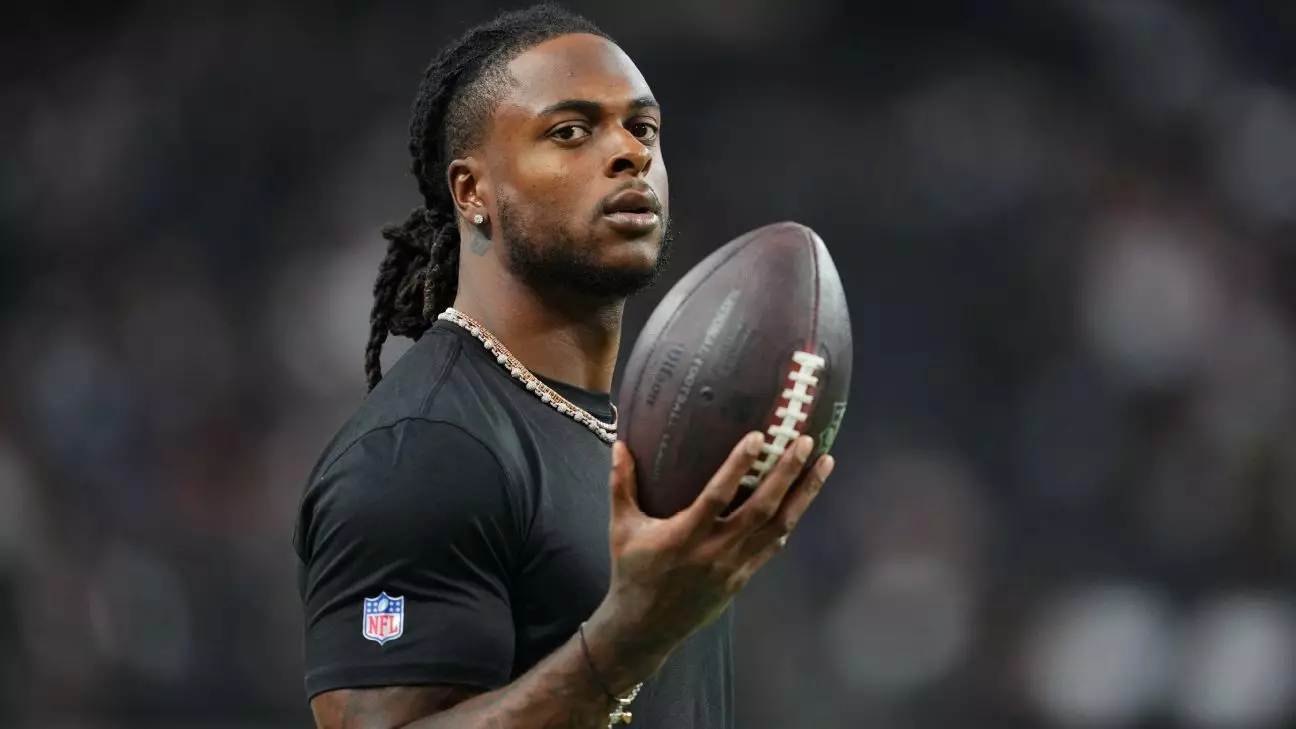In a recent turn of events surrounding the Las Vegas Raiders, standout receiver Davante Adams has found himself defending his happiness and commitment to the team following comments made by former NFL wideout DeSean Jackson. Jackson’s assertion that Adams was unhappy in Las Vegas generated controversy, leading Adams to set the record straight. This situation exemplifies the potential pitfalls of media narratives and the public’s readiness to form opinions based on hearsay rather than facts.
Adams’ rebuttal came during a press session as the Raiders geared up for their season opener against the Los Angeles Chargers. He expressed strong disapproval of Jackson’s claims, emphasizing the limited nature of their relationship, which consists of just a handful of encounters. Adams firmly stated, “the facts are the facts and that is not a fact,” underscoring his stance that there has been no substantive discussion suggesting discontent. By doing so, he drew a clear line between personal opinions and verified information, which is vital in an era saturated with speculation.
The crux of Jackson’s comments stemmed from observations made during Adams’ recent appearances, including his participation in the Netflix series “Receiver.” The show featured glimpses of Adams seemingly frustrated, which Jackson interpreted as cues indicating Adams’ unhappiness. However, as Adams pointed out, such observations can easily be misconstrued, particularly when taken out of context. Moreover, Adams made it explicit that his confidences are reserved for his wife, underscoring a commitment to privacy and loyalty that contrasts sharply with Jackson’s public insinuations.
Adams highlighted an essential point regarding how situations can be warped in the public eye. He indicated that the media often sensationalizes statements to drive engagement, referring to it as “bulls—” intended to mislead fans and generate clickbait. This observation reflects a broader trend within sports journalism where athletes’ statements and behaviors are often sensationalized to create narratives that may not align with reality.
The timing of Jackson’s comments raises further questions about intention and context. Adams had recently missed some team activities due to personal reasons—specifically to be with his wife for the birth of their child—which Jackson subtly referenced when discussing team dynamics and changes in the quarterback position. This critique of the Raiders’ quarterback situation also added layers of complexity to the discourse, as fans consider how the team is shaping up for the season. Still, Adams rejected the narrative that his personal circumstances equated to dissatisfaction with the team or its direction.
What Adams’ response ultimately underscores is the delicate relationship between athletes and media entities. Athletes are often thrust into the limelight, where their every word and action can be scrutinized. Misinterpretations not only affect their personal brand but can also damage team cohesion and public perception. The need for clear communication and understanding resonates strongly in such interactions.
Adams’ near decision to produce a video denying Jackson’s claims reflects a wrestling with the public narrative. He opted against such an action initially, perhaps understanding that engaging with every speculation may only serve to further propagate misunderstandings. It is a mature approach that sidesteps the drama while affirming his commitment to the Raiders and reinforcing the idea that narratives should be driven by facts rather than assumptions.
The episode surrounding Davante Adams and DeSean Jackson serves as an important reminder of the responsibilities involved in public discourse, especially in sports. As fans and media, there is a need to engage with athletes’ journeys respectfully and responsibly, avoiding the allure of sensationalism. For Adams, his commitment to the Raiders remains strong, and he stands firm against misinformation, illuminating the importance of truthful dialogue—both on and off the field. Adapting to change, building trust, and ensuring transparency are all pivotal not just for athletes but for the broader sports community engaged in its narrative.


Leave a Reply